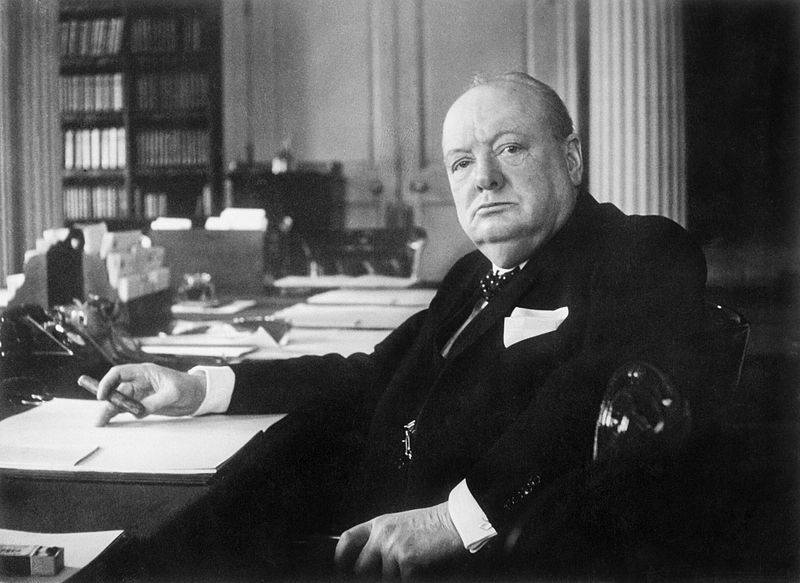Found: An Essay Winston Churchill Wrote About Alien Life
“Are we alone in the universe?” he asked.

Late in the 1950s, when he was solidly in his 80s and retired, as much as was possible for a man like him, from political life, Winston Churchill brought a draft of an essay down to a villa in southern France.
The place belonged to his publisher, Emery Reves, who had bought it from Coco Chanel with the money he made from selling the foreign rights to Churchill’s books on World War II. In his old age, Churchill preferred the warmth and luxury of this place, named La Pausa, to the colder, grayer atmosphere of England, and he would stay for long stretches of time, being treated royally by his hosts and working on his History of the English-Speaking Peoples.
This essay, though, covered a different topic, one that was less typical for the aging statesman, as a new report published in Nature reveals. Originally titled “Are We Alone in Space?” the essay explored the possibility of extraterrestrial life.

Churchill had first started working on the essay in 1939, before the start of World War II, and it ran about 11 pages. At La Pausa Churchill worked on revising it, changing the title to “Are We Alone in the Universe?” The essay was never published, though; Churchill left the draft at La Pausa, and in the 1980s Wendy Reves, Emery’s wife, gave it to the National Churchill Museum, in Fulton, Missouri.
Last year, the museum’s new director, Timothy Riley, rediscovered this essentially unknown piece of writing. When he handed it to Mario Livio, an astrophysicist and author, it was “a great surprise,” Livio writes in Nature. Riley wanted a scientist’s opinion of the essay: Had Churchill gotten it right?
As Livio writes in his Nature note, Churchill’s great curiosity extended to science, and he was the first British Prime Minister to have a science adviser on his staff. He had written about evolution, cells, and fusion, and in this essay he took on the question of alien life with reasoning that “mirrors many modern arguments in astrobiology,” Livio writes. Churchill considered the size of the universe, the key role of water in sustaining life, and the habitable zone of any solar system, where conditions and distance from the star might be most hospitable to life. He also was able to see past a then-current theory (later proven wrong) of planet formation that made finding life elsewhere less likely.
“I am not sufficiently conceited to think that my sun is the only one with a family of planets,” Churchill wrote.
Much of Churchill’s reasoning has been backed up by the modern science of exoplanets. As he imagined, it’s possible to find planets throughout the universe, and it seems possible that one day we will find evidence on life on other planets. The essay, writes Livio, is a testament to Churchill’s willingness to embrace science and use all the tools at his disposal to understand the world. “At a time when a number of today’s politicians shun science, I find it moving to recall a leader who engaged with it so profoundly,” Livio writes.












Follow us on Twitter to get the latest on the world's hidden wonders.
Like us on Facebook to get the latest on the world's hidden wonders.
Follow us on Twitter Like us on Facebook